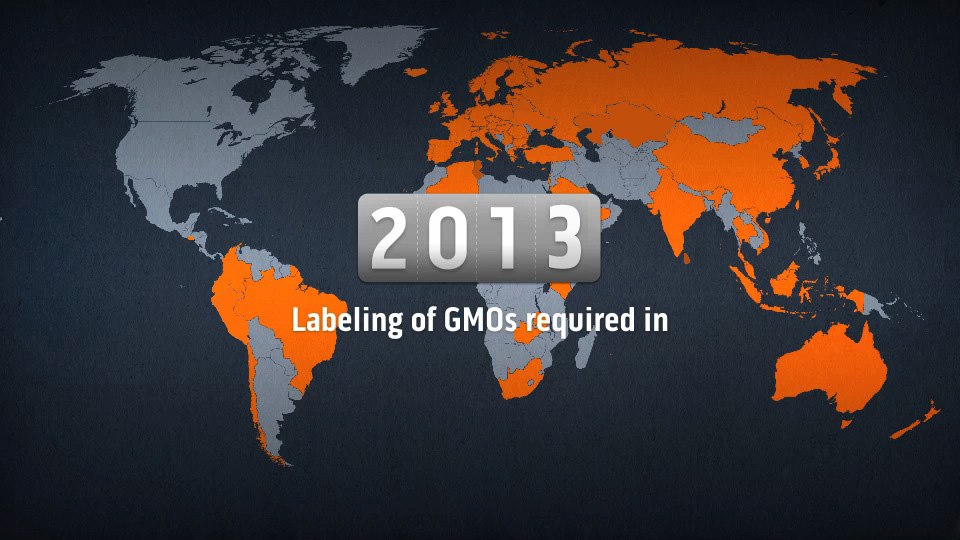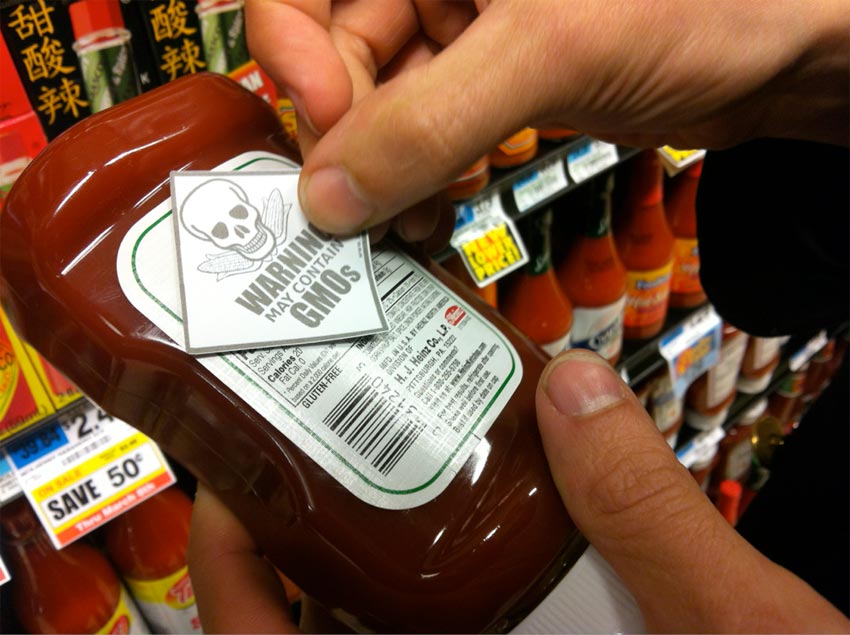This November, voters in Washington State will get to decide whether or not people should have the right to know if there are genetically-modified organisms (GMOs) in the food they buy when they vote on Initiative 522. Seattle is on the front lines of the GMO labeling front, after a similar ballot measure was defeated last year in California. Big agribusiness outspent the labeling advocates there 7 to 1, and the measure still came very close to passing.
“We starting early collecting signatures and talking to voters,” said Elizabeth Larter, communications director for the Yes on 522 campaign. “We were lucky to do this after California, because that campaign made GMO labeling a national issue. We’re working hard on making Washingtonians more aware. People have been responding really well.”
In their September 25 issue, the Seattle Times reported that the GMO labeling initiative is already shaping up to be one of the costliest ballot initiative fights in the state’s history. The No on 522 campaign has already raised almost $12 million from just six donors at the time of this writing. The No campaign's two other donors contributed $350 apiece.
To contrast, the Yes on 522 campaign has raised roughly $4 million from over 9,000 donors, at an average donation of $25 per person as opposed to the average donation of $2 million per person on the other side.
“They aren’t in business for transparency. They’re scared of people knowing what’s in their food,” Larter said. “The companies that oppose this initiative – Monsanto, Bayer, Dow Chemical, DuPont – they care more about making money than they do about people knowing what they’re eating.”
The Nutritional and Educational Labeling Act of 1990 established mandatory labels to show nutritional information on food products. Big Food opposed that measure just as they currently are with various GMO labeling measures in Oregon and Vermont, making the argument that the labels would be too confusing for consumers, or too costly to print, ending up costing consumers more money. Larter said history has proven the opposite to be true, also pointing out that labels telling consumers if a product is organic or locally-raised have the same purpose.
“They started labeling sodium and sugar content in 1990, and there’s still Coca-Cola and Oreos. Those costs didn’t go up, and people are still buying those products,” Larter said. “Yes on 522 is simply trying to give consumers more information. It’s a small label with a few words, and gives people more information on what they’re buying at the grocery store. The No side is just trying to make a mountain out of a molehill.”
While traveling through Olympia, Washington, I stopped at the state capitol and entered the governor’s office, asking Governor Jay Inslee's press liaison if the governor had made any public statements in support or opposition of Initiative 522. He refused to comment, instead saying that the governor would be briefed by staff later this week, and would make a statement after the briefing. As of the time of this writing, Gov. Inslee has remained silent.
Republican Governor Paul LePage in Maine and Democrat Governor Daniel Malloy in Connecticut have already signed legislation mandating the labeling of genetically-modified organisms. Oregon has a GMO labeling bill currently stuck in House committee.
“I would love for [Governor Inslee] to support this issue,” said Larter, who worked on his campaign. “It’s such a common-sense issue and it doesn’t really make sense for him to still be silent about it.”
Seattle has a radical history, and Washington has a reputation as one of the most progressive states in the country. The 1999 World Trade Organization Seattle conference was a staging ground for one of the most powerful nonviolent demonstrations against globalization, as well as a legendary standoff between Seattle Police and a black bloc. Larter said a defeat for the food justice movement in Washington would be very symbolic for the opposition, making it that much harder to campaign for it in the future.
“We’re in a very unique position. Everyone is watching us to see what we’ll do. There are other states like Vermont, whose senate is picking up a GMO labeling measure in January,” Larter said. “New York is debating a bill. New Hampshire is considering it. But Washington is definitely a bit of a bellweather this year.”
The ballots are going to be mailed out in 2 weeks, giving people 3 weeks to cast their vote and mail in their ballots before the deadline in November. Larter said even though the measure was defeated in California last year, she’s optimistic Washingtonians will make the right choice.
“California couldn’t pass marriage legalization, or marijuana legalization, but Washington did both. We have very progressive voters in this state.”
3 WAYS TO SHOW YOUR SUPPORT
- Log in to post comments













